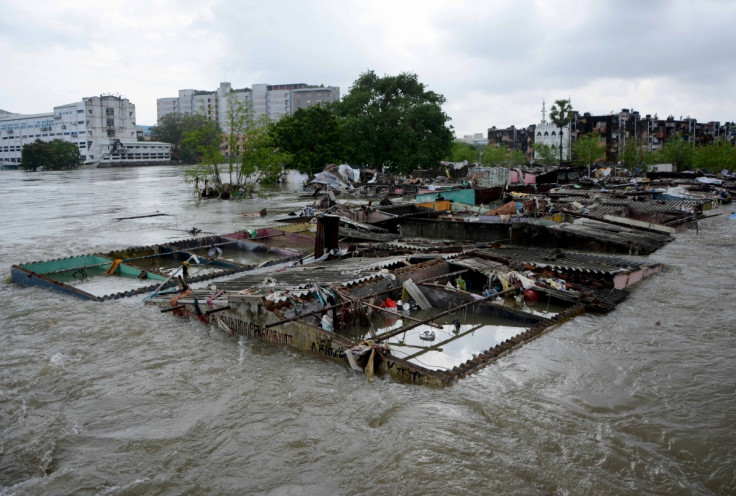Chennai Floods: Indian army evacuates 2,000 as death toll rises to 269

The death toll from the heaviest cloudburst for more than 100 years has reached 269 in the southern Indian state of Tamil Nadu. Earlier today (3 December), the Indian military conducted a huge rescue operation, evacuating some 2,000 people.
The state capital of Chennai has been battered by rainfall and further downfall forecast for the next 48 hours has forced the army to work at a frantic pace to reach survivors trapped by the deluge. The floods have killed more than 40 people in the past 48 hours, the Wall Street Journal reports.
Indian Prime Minister Narendra Modi visited the country's fourth most populous city of Chennai - which has seen the worst of the flooding - to witness the relief efforts. "The government will stand by the people of Tamil Nadu in their hour of need," Modi told reporters as he pledged £150m ($226.8m, €207.5m) for reconstruction and rehabilitation. As much as 345 mm (14 inches) of rain fell over 24 hours earlier this week.
"We live in a city expecting that we will have access to basic facilities. But today, we have no drinking water, no fresh food and no control over our lives," mother-of-two, Sudha Raman Murthy told Reuters.
Soldiers have erected 25 temporary shelters and communal kitchens as well as portable toilets. "We will have to resurrect an entire city," said army officer, Abhijit Shaw. Meanwhile, Chennai's international airport will remain shut until midday on 6 December after being inundated by seven feet of water.
The downpour has also forced carmakers including Ford Motor and Hyundai Motor among others to suspend operations in one of India's key auto-manufacturing hubs. Chennai Petroleum closed its 210,000-barrels-per-day oil refinery as a result of the flooding.
Facebook has activated its safety check feature to allow those affected by the flooding to inform friends and family that they are safe. Google has launched a "Flood Resources" page containing key information, including emergency helpline numbers.
© Copyright IBTimes 2025. All rights reserved.






















